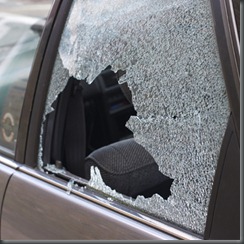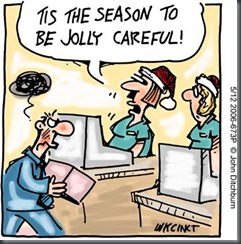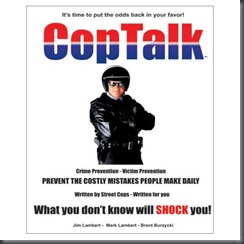ROAD RAGE…
We’ve all done it. Someone cuts you off, takes your parking spot, or tailgates you. Sometimes it’s a simple four-letter word out of your mouth, or maybe even a nasty hand gesture. Maybe just a dirty stare. But it’s all part of road rage, a growing trend of violence on the roadway. I found an article in an old Motor Trend magazine written by Cathy Nikkel. I’d like to share the article with all of you to try to avoid what is now common day violence:
Aggressive drivers who morph into berserkers under traffic stress are multiplying by seven percent a year, according to a study requested by the AAA Foundation for Traffic Safety. The study analyzed 10,000 police reports and newspaper stories about traffic incidents that led to violence and concluded that, while many of these enraged road warriors are young men with criminal records, a good portion are just average citizens who explode under stress.
Combining records from 1990 to 1996, the study found 12,610 drivers were injured and 218 killed as a result of aggressive driving attitudes. The events that lead to violence are often incredibly trivial—arguments over parking spaces, cutting off another vehicle, or tailgating. David K. Willis, president of the AAA Foundation, said, “Violent traffic disputes are rarely the result of a single incident. Rather, they seem to be the result of personal attitudes and the accumulation of stress in the motorist’s life.â€
There’s no single profile of the highway berserker, according to the study. Most are poorly educated males with criminal records, histories of violence, and drug or alcohol problems; however, hundreds of others are successful men and women with no history of prior violence. The age breakdown puts the majority between the ages of 18 and 26, but hundreds were between 26 and 50, and in 86 cases the aggressor was between 50 and 75 years old. Women became enraged in 413 cases; 285 of them used their vehicle as a weapon against another driver.
Driving stress can be counted upon to increase, since commutes are getting longer. According to a recent study by state highway officials, the average commute is now 30 minutes in the best of circumstances. In the worst cities, it averages up to an hour. As jobs decline in the cities, mass transit is becoming obsolete—it’s used today by only one in 20 commuters. Workers find driving times extended as their offices are moved to the suburbs, creating new traffic patterns that clog once-quiet suburban roads. Suburbanites are fighting back by requesting “traffic calmers,†such as speed bumps, to slow traffic in their neighborhoods. Road construction snafus will rise if the AAA is successful in lobbying Congress to repair the crumbling bridges and roadways of the national infrastructure. Meanwhile, the average citizen is reaching the boiling point in the family sedan.
How to protect yourself from the simmering rage of fellow commuters? The AAA suggests that drivers get reacquainted with the basic rules of the road. Don’t block the passing lane or the right-hand turn lane. Don’t tailgate, and signal when changing lanes. If you’re a slower driver, stay in the right lane or pull over and let others pass. Keep horn use to a minimum, and the same with high-beam headlights. Don’t take more than one parking space per car, and unless you are disabled, stay out of handicapped parking spots. Don’t flip off fellow motorist. The AAA cautions before becoming enmeshed in a driving duel; Remember your car isn’t bulletproof, a truly aggressive driver will follow you home, and you have to get out of your car eventually.
(End of article)
I wrote an article in CopTalk that gives several more tips to avoid Road Rage violence, and even has a story about how my father got involved in a Road Rage incident that escalated to a physical confrontation. My own father with two sons as cops. It can happen to anybody.
The article above stated that Road Rage violence was increasing by seven percent a year and the study was completed in 1996. It’s 1999 now, so the minimum increase is now around 21 percent, right?
WRONG. Higher than that… Not only has Road Rage increased, but assaults, weapons possession, and other violence has increased. So not only is the berserker in the car next to you more violent-prone, he probably has a weapon with him today.
The amount of guns Jim and me find on people and in cars has increased in the past few years. People feel threatened so they decide to arm themselves for protection. Not only is this illegal, but it puts a deadly weapon within reach in a heated moment. Lots of people do things in “the heat of the moment.â€
I constantly tell people “don’t do something out of anger that you will regret later.†But emotions take control over common sense when tempers flare.
The main tip here is just to “let it go.†If someone is tailgating you, even if you’re at or over the speed limit, pull to the right and let them go by. If someone cuts you off, take a deep breath and let it go. If you lose a parking spot to an aggressive idiot, find another one. It isn’t worth an altercation. If you flip someone off and they point a gun at you, what are you going to do then? Just remember, it’s a much more violent world today than a few years ago. Don’t let a minor irritating traffic incident escalate into a violent encounter.
I hear calls all the time similar to this:
“Extra patrol requested at 4445 Summer Street. Reporting party was involved in a traffic dispute and the suspect followed her home. Reporting party is afraid that the suspect now knows where she lives and will return later. Reporting party request extra patrol of her residenceâ€.
True? Yes. Reason to worry? Yes. An aggressive driver can return and damage your car or worse if he/she knows where you live. We cant park in front of your house all night to protect you or your car. We’ll drive by occasionally as time permits.
Best advice is to NOT get involved in a Road Rage incident. But if for some reason someone begins to follow you, drive to a well-lit area; shopping center, gas station, grocery store, anywhere there are lots of people around. Ask a security guard to call the police or quickly park and go inside, if possible, for help. Chances are that the other driver does not want attention or witnesses, so they will leave. The WORST thing you can do is to drive home with someone following you. You might be safe behind a closed garage door, but if the other driver now knows where you live, it isn’t safe. If you know where your local police station is, drive there. It would take a pretty stupid person to follow you to a police station.
Just control your emotions and “let it go.†Your anger will dissipate quickly. Losing a parking spot isn’t worth losing your life. Remember, the study showed violence in Road Rage increasing every year, and with assaults and weapons also increasing, it’s a deadly mix.
Stay safe and drive safe…
NetCops P.S.I.







